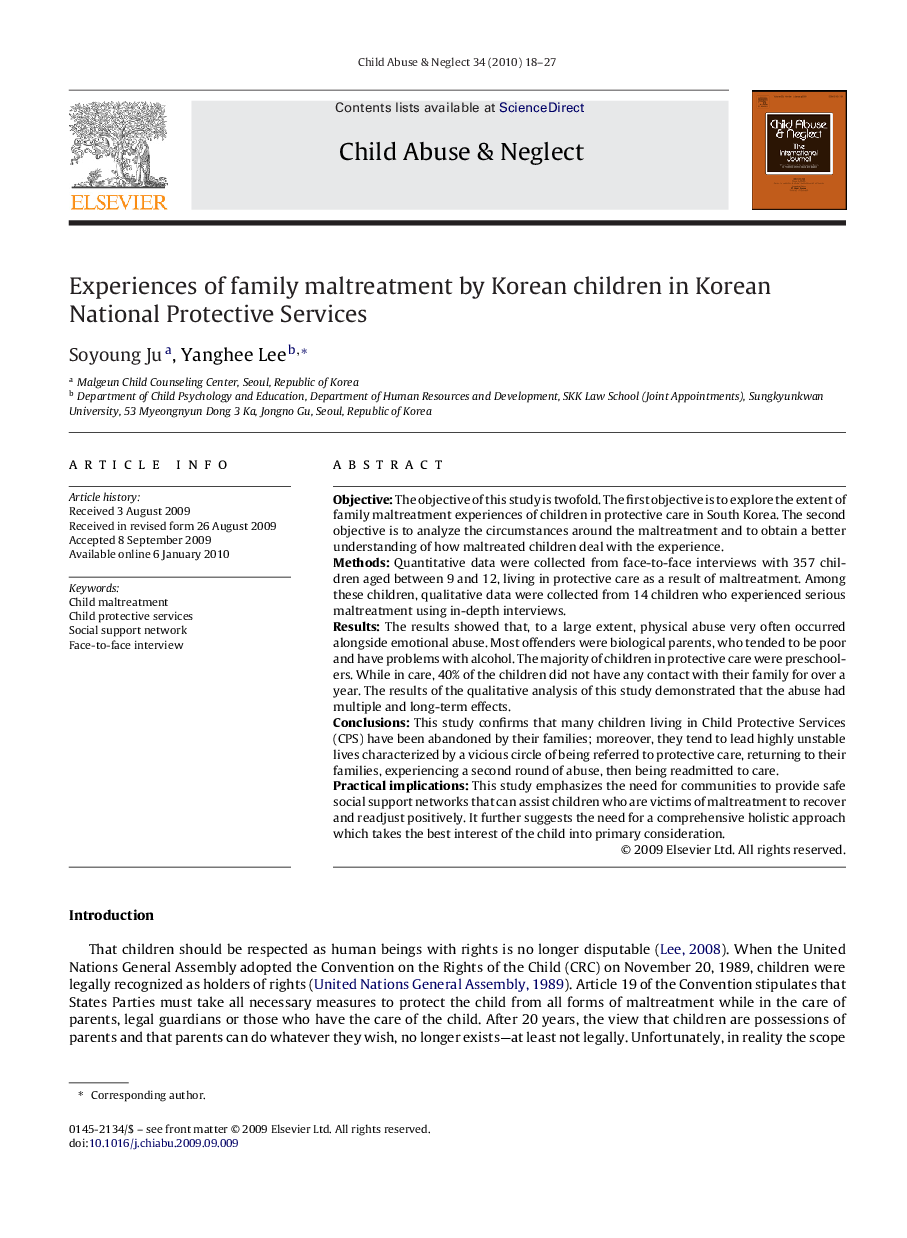| Article ID | Journal | Published Year | Pages | File Type |
|---|---|---|---|---|
| 345095 | Child Abuse & Neglect | 2010 | 10 Pages |
ObjectiveThe objective of this study is twofold. The first objective is to explore the extent of family maltreatment experiences of children in protective care in South Korea. The second objective is to analyze the circumstances around the maltreatment and to obtain a better understanding of how maltreated children deal with the experience.MethodsQuantitative data were collected from face-to-face interviews with 357 children aged between 9 and 12, living in protective care as a result of maltreatment. Among these children, qualitative data were collected from 14 children who experienced serious maltreatment using in-depth interviews.ResultsThe results showed that, to a large extent, physical abuse very often occurred alongside emotional abuse. Most offenders were biological parents, who tended to be poor and have problems with alcohol. The majority of children in protective care were preschoolers. While in care, 40% of the children did not have any contact with their family for over a year. The results of the qualitative analysis of this study demonstrated that the abuse had multiple and long-term effects.ConclusionsThis study confirms that many children living in Child Protective Services (CPS) have been abandoned by their families; moreover, they tend to lead highly unstable lives characterized by a vicious circle of being referred to protective care, returning to their families, experiencing a second round of abuse, then being readmitted to care.Practical implicationsThis study emphasizes the need for communities to provide safe social support networks that can assist children who are victims of maltreatment to recover and readjust positively. It further suggests the need for a comprehensive holistic approach which takes the best interest of the child into primary consideration.
